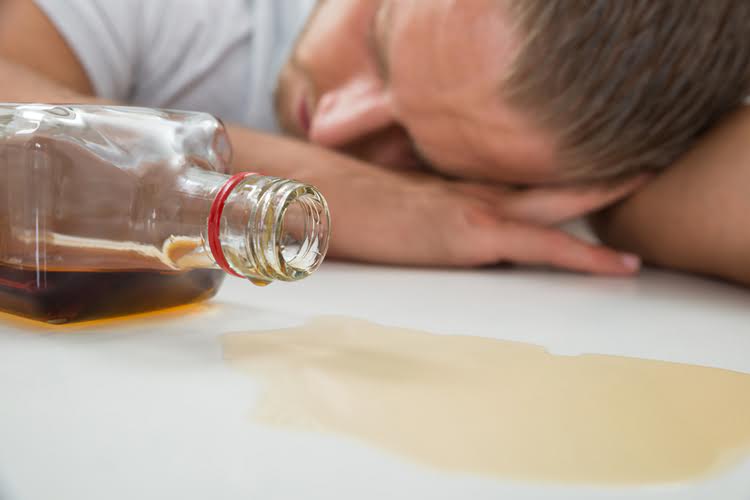You’ve already done something incredibly hard—and you’re capable of doing it again, one day at a time. Without the drugs to fill that void, people need something else that will satisfy them spiritually, emotionally and mentally. Drug addiction affects the immune system of the body and makes it weak. People who go through substance abuse problems are more likely to catch diseases than those who don’t.
- As individuals form these new routines, they gain a boost in self-efficacy—believing in their ability to sustain change.
- These goals may encompass rebuilding relationships, advancing in a career, or developing new hobbies.
- After finishing his residency, he moved to Kenton, Ohio to start his first private practice.
- In this guide, we’ll walk you through how to thrive after treatment and stay strong.
Handling Relapse and Setbacks
Even if you feel like isolating, staying connected to a recovery community keeps you accountable and reminds you that you’re not in this alone. When you have too much free time, old habits and cravings can creep back in. Filling your schedule with meaningful activities helps prevent this while giving you something to work toward. Work, hobbies, volunteering, or exercise can all help give your life structure and purpose. That means staying connected to the right people, creating new routines, and finding ways to manage stress and triggers. Staying in recovery means avoiding relapse, sure, but the core way to do so is to actively build a life that makes staying sober feel worth it.
What a Typical Day in a PHP Looks Like

Rebuilding your life after addiction is a journey that extends beyond rehabilitation. It involves understanding your challenges, building a strong support framework, prioritizing self-care, and maintaining hope through ongoing growth and therapy. Remember, recovery is a dynamic process that requires patience, resilience, and a commitment to personal transformation.
Understanding the Detox Process in a Luxury Treatment Setting
- So go ahead, use your substance use disorder as an excuse to wipe the slate clean.
- Engaging in regular physical activities, like yoga or exercise, can also contribute positively by releasing endorphins, reducing anxiety, and improving mood.
- Early recovery is a time of growth, self-discovery, and new possibilities.
Drug addiction can affect the physical health of a person very badly. When you exercise and eat healthily and don’t waste your time on drugs, it increases the overall energy of the body. First, you’ll have access to group therapy sessions like 12-step meetings that offer ongoing support. These counseling programs address many issues that people face in recovery from work and family stressors to successes, and everything in between. If you’ve just completed a treatment program, you’re likely thinking about what’s next in your recovery from drug addiction.
- This community can help combat feelings of isolation, allowing individuals to share their experiences and challenges, thus promoting emotional well-being.
- Initially, you’ll have to conquer withdrawal symptoms and cravings to use again.
- Managing stress effectively can significantly aid in maintaining emotional stability during recovery.
- Rather than turn to a substance to feel-good you can boost your dopamine levels naturally.
- Setting clear, achievable goals will help guide all other decisions you make and serve as a powerful reminder of why you want to stay sober.
How Exercise Supports Sobriety and Mental Health
In rehab, every part of your day was structured for you with therapy sessions, meals, group meetings. Now, you can decide how you spend your time, which can be both exciting and overwhelming. It can be difficult to work through early recovery and move past the struggles Drug rehabilitation you had.
Illegal Drug Addiction
The good news is that the brain is capable of healing through neuroplasticity, meaning it can rewire itself given the right conditions and treatments. In early recovery, these moments may feel intense, but they don’t last forever. The longer you stay sober, the more you’ll learn how to recognize and manage cravings before they take control. No matter how strong your commitment to recovery is, there will be moments when cravings hit or something triggers the urge to use. Stress, certain places, or even emotions like loneliness and frustration can bring up old patterns of thinking.

That may be a mentor, a family friend, or someone who’s in a similar stage of life right now. Friends, family, and the internet probably throw a ton of advice at you, all claiming to know exactly what you need to do. And so we’re also never totally done with cravings https://ecosoberhouse.com/ or poor choices.
How to Deal with Cravings and Avoid Temptations in Recovery
This can be challenging because it’s hard to recognize or establish your limitations. For instance, some of the people with whom you were close before addiction entered the picture may never be as close to you again. It’s important to avoid over-extending yourself in order to force things to go back to “normal”. It’s easy to become discouraged and rebuilding life after addiction stop moving forward when situations like this occur.
